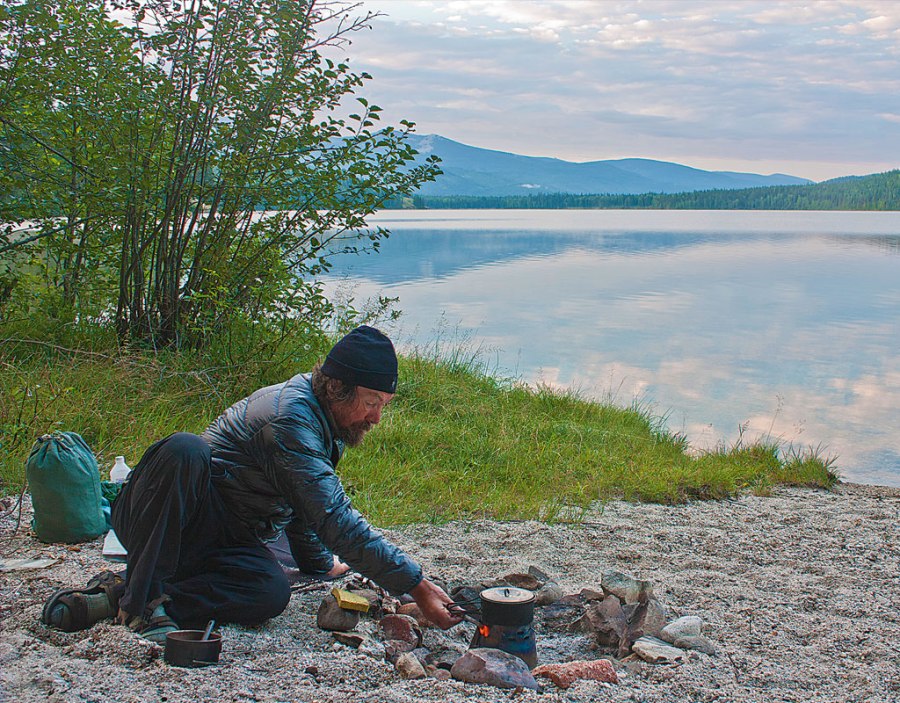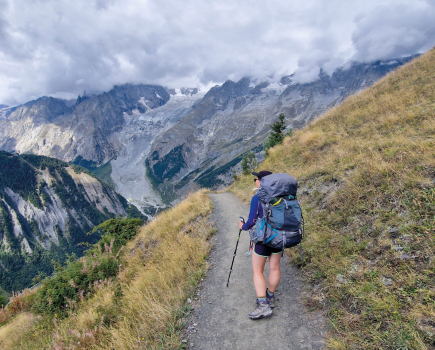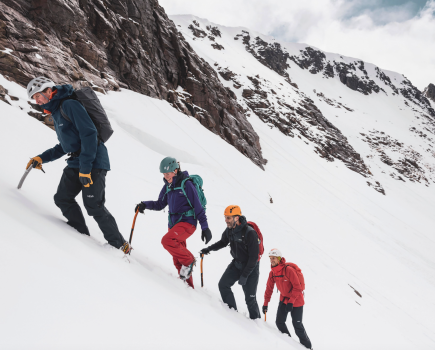James Menta of Best Air Mattress Guide explains how to keep the calorie intake up, even if you are a vegan
In spite of what those who are not into hiking think, hiking requires serious work and a serious planning. You need a carefully crafted plan to be able to fully enjoy the outdoors and not just wait for that next stop because you are so tired that you don’t even notice the beauty that you went out to see in the first place.
This becomes more important if you are a vegan, because hiking and outdoor activities take a toll on the body that needs to be replenished, refueled. It is not much of a problem for regular folks (non-vegans), but if you are a vegan this becomes complicated.
But with a bit of extra care when planning, any vegan can enjoy hiking as much as the next person.
Generally, as an experienced hiker, I would say that this smarter planning refers to two parts of the process primarily.
Firstly, any aged outdoor enthusiast will tell you that choosing your gear smartly can make or break your hiking or trip. This also becomes more important when you want your trip to be energy-efficient and take as little toll on your body as possible. You don’t need that additional worries of the seams on your backpack popping and you especially need your good night’s sleep. Choosing the right sleeping pad or a mattress can make the world of difference here. Being well rested will have a huge impact at the way your body reacts to the stress of the outdoors and how much fuel it needs.
Secondly, and now we are getting to the gist of this article, how to properly fuel your body for the outdoors – vegan style.
When I use the word ‘fuel’ here you might get the idea that the calorie intake would be the main problem of a vegan, which is not quite the case. Actually, energy will be the least of the issue here.
Why?
Simply because you can find plenty of calorie dense foods on the list of vegan foods. This is due to the fact that fat, as the main calorie contributor of a vegan hiker, is twice as dense in calories as protein or carbs. And the good news doesn’t end here, the fat we are talking about is the ‘good fat’ that’s healthy and will not make you feel sluggish and clog your arteries.
So, let us look at your options here. Obviously, the most practical foods will be canned but if you don’t like canned foods, we’ll think of something, just bear with me…
4 healthiest canned vegan foods for the outdoor enthusiast:
1. Canned pumpkin pure
Very convenient for pumpkin soups by the campfire and rich delicious smoothies. It is loaded with healthy stuff like fibre, potassium and zinc but will not be of much help in terms of calories as it is not very calorie dense. You will have to look for your calories elsewhere.
2. Canned tomatoes
Again not very calorie dense but will come in handy because you don’t want your evening meal to be boring now, do you? Of course not, so try the fire-roasted spicy tomatoes to keep things interesting.
3. Canned fruit
An obvious choice just to keep that sweet tooth of yours at bay.
4. Canned beans
It takes time to prepare beans traditionally, I know, but how about going in a different direction for a moment and think hummus. Yes, hummus is basically nothing more then beans puree, so all you need is a can of beans and a fork. Puree away.
If you are not a fan of canned foods, you are facing the challenge of the lack of refrigeration and what my experience tells me is that the foods I would refrigerate at home last for several days out in the open.
Getting your fuel – going nuts
You guessed it – by far the easiest way to get calories. One ounce of nuts will inject your body with around 160 healthy kCal. They are especially precious for a vegan camper or hiker because whether you choose raw, roasted or canned, you avoid the risk of your food going rancid.
And yes, be generous on your oils when making the salads and the purees we talked about. My favorite is coconut oil – one tablespoon of it and there you have it – a nice 120 kCal added.
Getting your protein
This is where it gets tricky. I am assuming that as a vegan you know how to get your complete protein at home…tofu, tempeh, quinoa, all good. But on the road you have to think about your tofu or tempeh going bad and unusable.
Ok, you can get some protein from quinoa that you can cook by the campfire (quarter cup of uncooked quinoa will yield a full cup of cooked quinoa and 7 grams of complete protein). This is good but not quite enough if you are planning a longer trip, so I would suggest opting in for some soy protein powder that you can just add water to and replenish and repair your cells in the evening.
So, there we go, we have a game plan here for a complete guilt-free vegan hiking or camping trip. Takes a bit more planning and consideration but you’ll forget all about that part once you breathe in that beautiful mountain air.
Hike away vegan style.
“James Menta is an outdoors expert who spends most of his time testing and reviewing camping gear. He discovered his passion at an early age and has been in love with nature ever since. Nowadays he offers tips to camping enthusiasts whenever he has the opportunity…. lately he discovered he likes blogging and is currently working on http://www.bestairmattressguide.com, a blog where he offers comparison charts and recommendations.”







